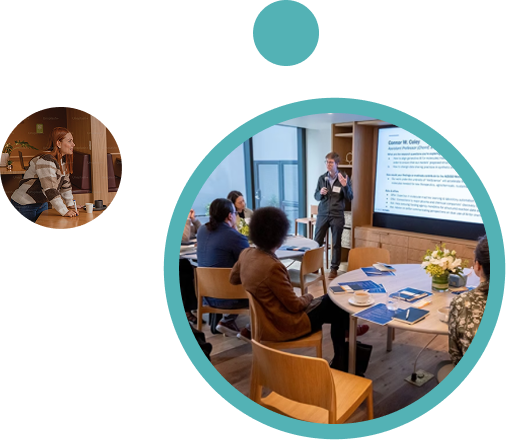Josh Tenenbaum
Josh Tenenbaum is Professor of Computational Cognitive Science at the Massachusetts Institute of Technology in the Department of Brain and Cognitive Sciences, the Computer Science and Artificial Intelligence Laboratory (CSAIL) and the Center for Brains, Minds and Machines (CBMM). His long-term goal is to reverse-engineer intelligence in the human mind and brain, and use these insights to engineer more human-like machine intelligence. In cognitive science, he is best known for theories of cognition as Bayesian inference, with a focus on explaining how humans can learn so much so quickly, from so little data. In AI, he has developed influential approaches to dimensionality reduction, unsupervised learning and structure discovery, and probabilistic programming. His current research focuses on probabilistic program models of common sense in humans and machines, grounding language and perception in these representations, and learning based on program synthesis. His papers have been recognized with more than fifteen awards at major conferences in Cognitive Science and AI, and he is the recipient of the Troland Award from the National Academy of Sciences, the Warren Medal from the Society of Experimental Psychologists, a MacArthur Fellowship, the Fyssen Foundation International Prize, and membership in the American Academy of Arts and Sciences.
AI2050 Project
In his AI2050 project, Tenenbaum aims to make AI systems that are as broadly useful as today’s large language models, but that are more genuinely intelligent—and intelligible. By integrating neural networks with computational models of human cognition based on probabilistic inference and probabilistic programming, he will build models where language and thought work together in human-like ways. These systems will learn to grasp new concepts from very little data, reason with them robustly, and integrate them into coherent, lifelong models of the world, as people do. This will be AI that we can trust, teach, and learn from, to build a deeper shared understanding of our world.
Project Artifacts
AI2050 Community Perspective — Josh Tenenbaum (2024)
Professor, Massachusetts Institute of Technology
Hard ProblemCapabilities


